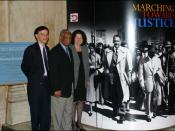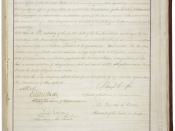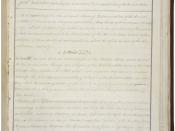The framers formed this country with one sole document, the Constitution, which they wrote with great wisdom and foresight. This bountiful wisdom arose from the unjust treatment of King George to which the colonists were subject. Among these violations of the colonists' rights were inequitable trials that made a mockery of justice. As a result, a fair trial of the accused was a right given to the citizens along with other equities that the framers instilled in every other facet of this country's government. These assurances of the citizens' rights stated in the bill of rights. In the Sixth Amendment, it is stated that, "In all criminal prosecutions, the accused shall enjoy the right...to have the Assistance of Counsel for his defence." A first reading of this phrase one might be think that this right, that which gives a person accused of a crime to have lawyers for his defense, is common knowledge being that it is among the most basic rights given to the citizenry of the public.
However, the simple manner in which this amendment is phrased creates a "gray area", and subject to interpretation under different circumstances. The legitimacy of the right to mount a legal defense is further obscured by the Fourteenth Amendment which states, "No State shall make or enforce any law which shall abridge the privileges or immunities of citizens of the United States." As a result, many questions begin to arise which seek to determine the true right of the accused to the assistance of counsel. Should legal counsel be provided by the government if the accused lacks the funds to assemble a counsel for his defense? Or, on the other hand, does this amendment set the responsibility of assembling a defensive counsel on the accused even if he or she lacks the...


